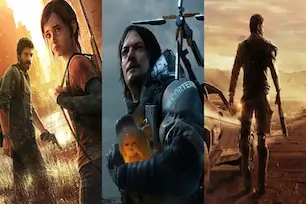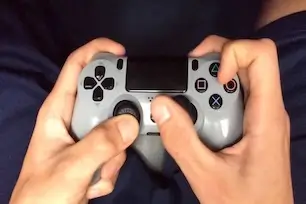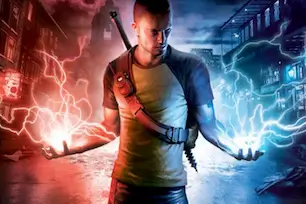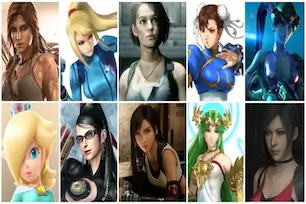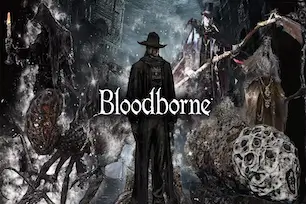When it comes to games with immersive stories, I consider myself a completionist. I focus on story completion rather than achieving 100% in every game. Sometimes I try to finish every part of a great game, but usually, I'm happy just to complete the main story and some fun side quests.
Lately, I've been wanting to explore the PS3 again. It has a great collection of story-focused games that are worth experiencing. However, I've also noticed a worrying trend: I'm giving up on games halfway through more frequently than before.
- Repetitive tasks, weak feedback, and poor difficulty curves often make players quit mid-game.
- Even visually beautiful games like Ni no Kuni can feel hollow if mechanics are slow, confusing, or grind-heavy.
- Games that fail to reward progress or emotionally invest players often lead to burnout and frustration.
- Uninspired design leads many gamers to sell or trade titles that no longer spark joy in their collection.
The Table of Contents
The Rise of Game Abandonment: Why You Might Quit Games Early
This situation shows a larger trend in the gaming community. Studies show that many gamers abandon their titles, with only a fraction reaching the end. As life gets busier, I am more likely to stop playing a game that is only slightly fun but takes a lot of time.
Disengagement Through Boring Mechanics and Game Design Flaws
A clear example of disengagement is found in Ni no Kuni Wrath of the White Witch, a PS3 game I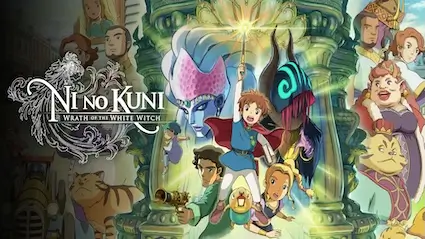 first liked because I appreciate Studio Ghibli's beautiful artwork.
first liked because I appreciate Studio Ghibli's beautiful artwork.
The promise of a captivating adventure drew me in, but after investing 15-20 hours, I found myself struggling to enjoy the gameplay. After spending time on the long tutorials, I was disappointed with the gameplay and the story.
While the stunning visuals offered an immersive experience, the absence of unique characters and storytelling, which define Studio Ghibli films, was glaring. The absence of compelling narrative in video games can lead me to a disengaged experience. I found myself struggling to connect with characters and narratives that lack depth.
These gameplay issues illustrate broader game design flaws that contribute to player disengagement:
- Lack of Clear Goals: When players are unsure of their objectives, it creates confusion and frustration. A successful game should provide clear direction to keep players engaged.
- Repetitive gameplay loops, like doing the same tasks over and over or grinding for items, can make the game feel boring. This lack of variety can lead players to stop playing.
- Poor difficulty curves can push away players. If a game suddenly becomes much harder, it might frustrate them. On the other hand, if a game is too easy, it can feel boring and unexciting.
- A good challenge is important to keep people engaged.
- Players require clear feedback about their actions. It helps them understand what they are doing well and where they can improve.
- Not receiving recognition for achievements can lead to disappointment and a decrease in motivation.
By knowing how dull gameplay and poor design can lead to disinterest, players can choose better games to spend their time on. These insights also underscore the importance of thoughtful design, encouraging developers to focus on engaging gameplay experiences.
Visuals vs. Narrative Depth
- While the Studio Ghibli art was undeniably stunning and offered a visually immersive experience, I quickly realized that the unique characters and
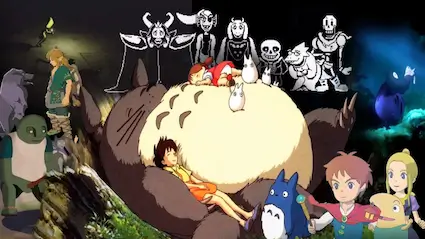 storytelling that characterize their films were largely absent.
storytelling that characterize their films were largely absent.
- It became evident that “Ni no Kuni” relied heavily on familiar tropes without adding any fresh elements to make the narrative engaging.
- The appealing visuals did not make up for the shallow character development and weak plot. This made me feel detached from the story.
Mechanics That Fail to Engage
- Additionally, Level 5's Pokémon-like battle mechanics, though decent in concept, ultimately fell flat in execution.
- The combat system involved repetitive turn-based battles that felt more like monotonous grinding than exciting encounters.
- The rewards for leveling up or completing quests were often minimal, leading to a disheartening sense of progression.
- Without interesting challenges or fun mechanics, the gameplay felt more like a boring task instead of an enjoyable experience.
The Decision to Move On
- After leaving Ni no Kuni Wrath of the White Witch alone for a few months, I looked at other games in my collection that also hadn't grabbed my attention. Realizing that I was struggling to enjoy myself with these games made it clear that it was time to part ways.
- I decided to sell Ni no Kuni along with a few other titles that didn't meet my expectations and clear space for games that better aligned with my preferences.
- This way, I could focus on finding experiences that would really engage me instead of pushing myself through parts that felt boring and unoriginal.
Recognizing Uninspired Gameplay Mechanics
- Before Ni no Kuni Wrath of the White Witch, the last two games I gave up on were Puzzle Quest: Challenge of the Warlords and Metal Gear Acid both for the PlayStation Portable.
- Each session lasted only 2 to 3 hours before I realized these games wouldn't meet my needs. This was mainly because the gameplay was dull and didn't keep my interest.
The Allure of Puzzle Quest: A Missed Opportunity
- Puzzle Quest offered an intriguing blend of RPG elements and Match-3 gameplay that initially captured my interest.
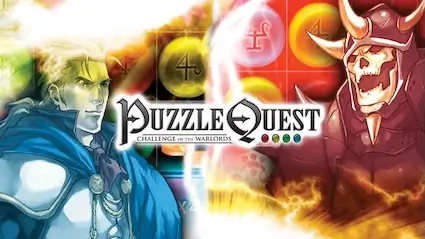
- The concept of combining traditional role-playing game mechanics with a puzzling challenge sounded fresh and innovative.
- As I began to play the game, it soon became clear that the mechanics were more boring than fun.
- The repetitive nature of matching gems felt like a chore rather than a captivating challenge. Instead of getting lost in a good story or caring about the characters, I was just moving pieces around without any feelings.
- The idea of improving and gaining new skills was lost in the repetitive Match-3 battles, making me feel less motivated to keep playing.
Metal Gear Acid: Complexity Without Connection
- On the other hand, Metal Gear Acid tried to bring a card game style to the Metal Gear series, but it did not connect with me.
- The strategic elements were convoluted, and I struggled to connect with the game's mechanics.
- Instead of feeling like a clever and engaging tactical experience, it often felt disjointed and forced.
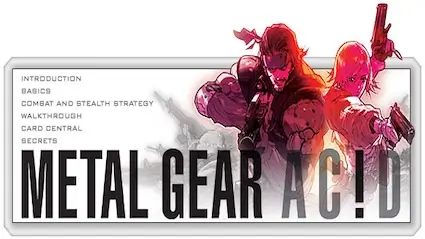
- The card management system made things more complicated. This took away from the fast-paced gameplay I was used to in the series.
- As a result, the game's story and other engaging elements fell flat, leaving me with a feeling of disconnection.
Importance of Engaging Gameplay Mechanics
- Both titles emphasize how gameplay mechanics affect a player's enjoyment and engagement with a game.
- When the main parts of the game don’t match what I want—like fun battles, an interesting story, or satisfying progress—I find the experience lacking and tend to leave.
Reflection on Gaming Choices
- These disappointing experiences have made me realize how important fun gameplay mechanics are for my enjoyment.
- This realization led me to reconsider my gaming choices, prompting me to pursue titles that offer the immersive experiences I crave, rather than settling for games that merely fail to captivate my interest.
The Psychology Behind Quitting Games
These experiences show three main reasons why I stop playing certain games.
- One way is realizing early on that I dislike the mechanics or story.
- Another person might enjoy the game enough to play a quarter or a third of it, but in the end, they may feel it isn't worth the time or money.
- The third reason usually has to do with unexpected breaks. Sometimes, I may be close to finishing a game but don’t have time to play for a few weeks. This can cause me to feel burnt out from the time I’ve spent on it.
The Challenge of Player Burnout
- When attempting to restart lengthy games with complex mechanics, it can be challenging to regain momentum. Even though I try hard, I often feel unsure about jumping back into games. After a long break, I feel disconnected from the stories and gameplay.
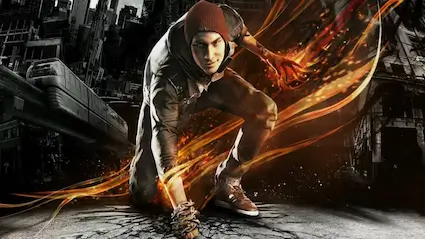
- Understanding player choices is important because they greatly influence my enjoyment and engagement in games.
- This helps me find more rewarding experiences. I am looking for experiences that offer a more satisfying and interesting adventure.
- I am drawn to games with easy-to-understand mechanics and interesting stories. On the other hand, games with design flaws can quickly make me lose interest and stop playing.
- By recognizing how burnout influences my choices, I've become more discerning in selecting titles that align with my preferences, ultimately aiming for immersive and enjoyable experiences.
Success Stories: Overcoming Burnout
- I have been able to get back into gaming sometimes. I finished Final Fantasy XII and a few other long games after taking breaks.
- These experiences often make you feel accomplished, especially after you have spent a lot of time on the game.
- However, certain titles like Okami remain untouched. Even though it is a great game, and I spent around 35 to 40 hours on it, taking a long break has slowed down my progress.
Complex Mechanics and Reconnecting
- The battle and quest systems in Okami can be complex. They need players to understand special mechanics, like using celestial brush techniques and timing actions during fights.
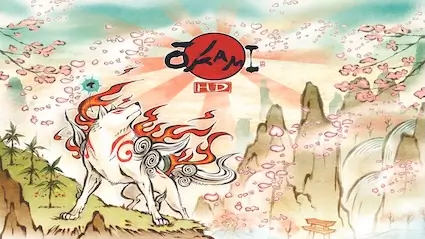
- Since I need to remember the rules to play well, I sometimes hesitate to start again. It can be overwhelming to refresh my memory on these details, especially with the time pressure I face in my daily life.
The Role of Inertia in Restarting
- Additionally, inertia plays a significant role in the decision to restart. The longer I stay away from a game, the more daunting it feels to dive back in.
- Starting the game over feels strange. I miss the familiar experiences, storylines, and character growth that once drew me in.
- Every time I think about playing Okami or other great games again, I have two challenges. I need to get excited about the gameplay again and remember the story I had stopped following.
Finding Fun in Gaming: Reader Reflections
- As we look into gaming, it's important to know how fun gameplay and good stories can impact our experience.
- By considering different gaming perspectives, players can better understand how design flaws may diminish their enjoyment and lead to disengagement.
- The experiences I've shared highlight the importance of meaningful player choices and the role that rich narratives play in fostering connection with the game world. Ultimately, both developers and players alike must prioritize immersive experiences that resonate with audiences, ensuring that the journey through video games remains rewarding and captivating.
- I encourage you to think about your own gaming experiences. Consider how the details of gameplay and storytelling have influenced how you see yourself as a player.
Making Space for New Adventures: Sell Your Old Games
As we explore the nuances of gaming and engagement, it’s also important to consider what to do with those titles that no longer captivate our interest.
Selling old games can free up space and give us a chance to buy new ones that we will enjoy more.
If you have a collection of games that you are not happy with, think about using a trade-in site like The Old School Game Vault.
With thousands of satisfied customers, The Old School Game Vault offers a simple, yet effective way for selling your vintage video games online.
Trading your unwanted games lets you discover new adventures that match your gaming tastes. This helps keep your gaming experience fun and satisfying.
Frequently Asked Questions About Boring Gameplay
Do most gamers finish the video games they buy?
- Roughly 1 in 3 players finish the games they start.
What made you quit video games?
- Repetitive gameplay, lack of time, or feeling disconnected from the story.
Why do games I used to like bore me?
- Your tastes may have changed, or the gameplay no longer feels fresh or rewarding.
Why do I get so annoyed at games?
- Frustration often comes from poor design, difficulty spikes, or unfair mechanics.
Why do most people stop playing video games before finishing them?
- Most players quit because of limited time, short attention spans, or distractions like multiplayer and social media.
What percentage of gamers finish the games they start?
- Industry estimates say up to 90% of players never finish the games they start.
Does game length affect completion rates?
- Yes—longer games are abandoned more often, especially those over 20 hours.
Are shorter games more likely to be finished?
- Yes—10-hour campaigns often have completion rates as high as 50%.




